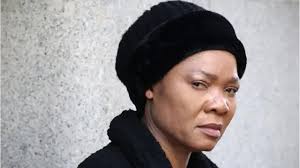The recent viral video of Ushie Uguamaye, a National Youth Service Corps (NYSC) member, has sparked a fiery debate in Nigeria. In a candid and heartfelt moment, Uguamaye criticized President Bola Tinubu’s administration for the ongoing hardships faced by Nigerians due to economic reforms. Her words were raw, unfiltered, and echoed the sentiments of countless Nigerians who are struggling with skyrocketing living costs and economic uncertainties. However, rather than sparking a dialogue on the legitimacy of her concerns, the backlash against Uguamaye has drawn attention to the broader issue of freedom of expression and government accountability. In the video, Uguamaye, a young woman serving in Lagos, described the administration’s policies as disastrous, calling Tinubu a terrible president. The video quickly went viral while capturing the frustrations of a generation who feel trapped in a system that prioritises political stability over the welfare of its people. The reaction to her words has been swift and harsh. NYSC officials allegedly called Uguamaye and pressured her to delete the video, citing its controversial nature. In fact, Uguamaye accused NYSC of threatening her. Critics, including civil rights organizations like Amnesty International, have condemned the treatment of Uguamaye, arguing that she has been unfairly threatened for exercising her right to free speech.
What followed her criticism was as telling as the video itself. The Trade Union Congress (TUC), a Nigerian labour organisation, voiced support for Uguamaye, urging the government to show tolerance for dissent. TUC President, Festus Osifo, emphasized that Uguamaye’s outburst was a result of genuine frustration rather than a deliberate attempt to undermine the government. Osifo’s comments hit the nail on the head: People are frustrated, people are hungry, people are tired. The Nigerian populace, particularly the youth, have been subjected to economic policies that have deepened poverty and created widespread discontent. Yet, rather than addressing the grievances that gave rise to such frustration, the government’s response has been to silence the messenger. This raises a critical question; How can a government claim to represent the people if it is unwilling to listen to their criticisms, especially when those voices come from its most vulnerable citizens? This incident also highlights a bad trend in Nigerian politics- one in which the voices of dissent are often stifled, and the space for constructive criticism is shrinking. The NYSC, an institution that is supposed to foster national unity and service to the country, has instead found itself in the uncomfortable position of being used as a tool to suppress free expression. Uguamaye’s case is a stark reminder of how the system can sometimes punish those who dare to speak out, even when their criticism is valid.

At the heart of this issue is the struggle between the government’s desire for control and the citizens’ right to hold their leaders accountable. Critics of the administration, including Uguamaye, are not attacking the person of the president but are highlighting the policies and decisions that have directly impacted the lives of ordinary Nigerians. Whether it’s the removal of subsidies, the devaluation of the naira, or the rising cost of goods, these policies have created a wave of discontent that cannot be ignored. The government’s response should not be to intimidate or threaten critics, but to engage in open dialogue, to listen to the concerns of the people, and to take meaningful steps to address their challenges. Also, the treatment of Uguamaye highlights a larger issue with the NYSC system itself. The corps is meant to be an opportunity for young Nigerians to serve their country, gain experience, and contribute to national development. However, incidents like these serve to remind us that the NYSC, in some instances, may be more concerned with political loyalty than with promoting true national service. If a corps member cannot express their frustration without fear of reprisal, then it raises serious questions about the state of free speech and political discourse in Nigeria.
As the controversy surrounding Uguamaye’s video continues to unfold, one thing is clear; Nigerian youth are fed up. This is seen with the current 30-dayprotest challenge on social media. They are tired of being ignored and sidelined, and they are demanding change. It is imperative that the government recognise the value of dissent and criticism as essential components of democracy. If leaders are serious about improving the lives of Nigerians, they must first learn to listen to the voices of their citizens, no matter how uncomfortable those voices may be. In the end, Uguamaye’s outburst was not just the rant of a disgruntled individual, it was the voice of a generation that feels left behind. Rather than punishing her, the government should consider her words as a call to action. The future of Nigeria depends on the ability of its leaders to listen, to engage with the people, and to address the frustrations that have been simmering beneath the surface for far too long. If not, this viral incident will only be the first of many to come!
This is the opinion of the writer and not the view of this platform.




